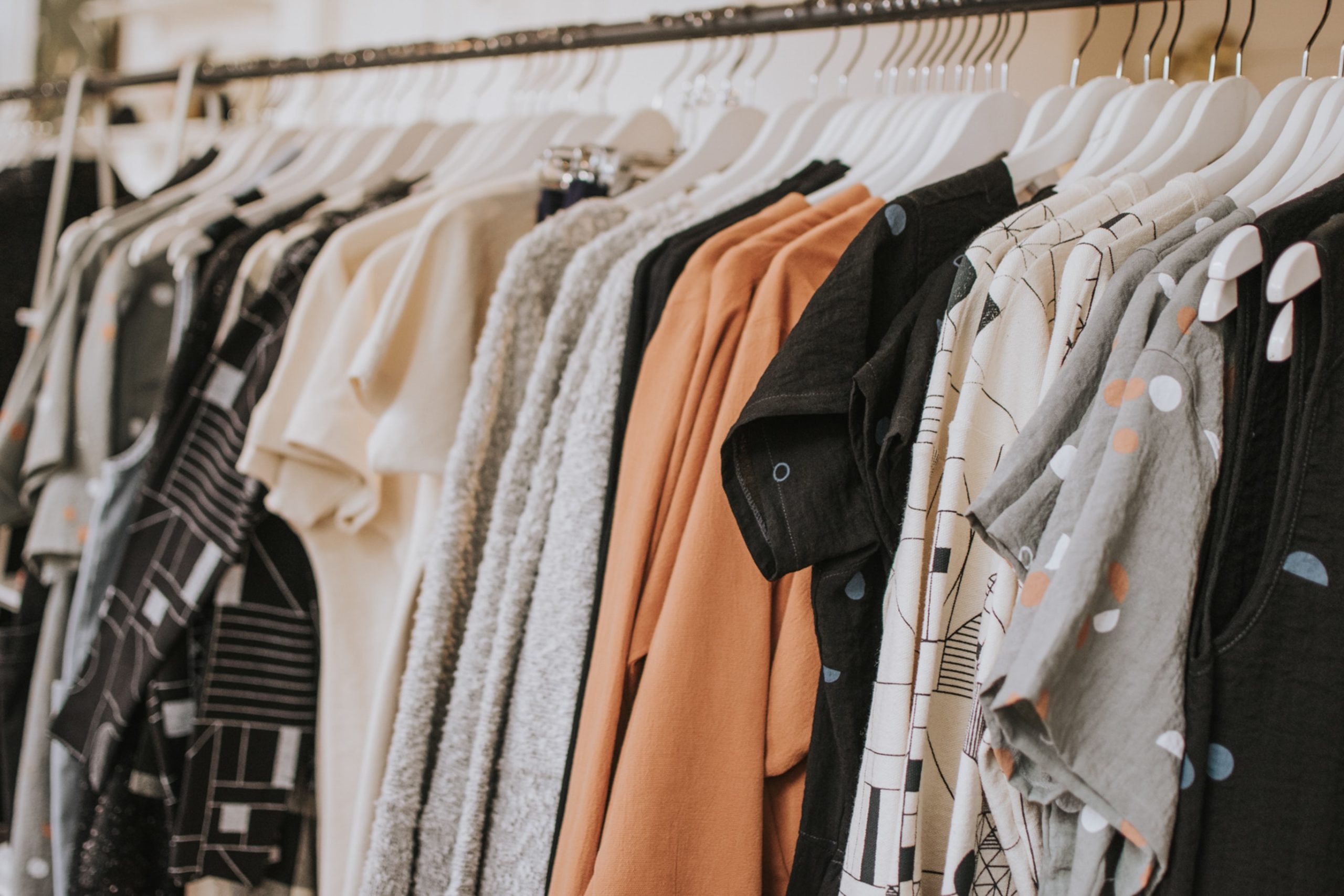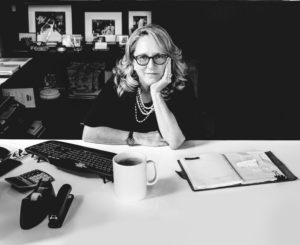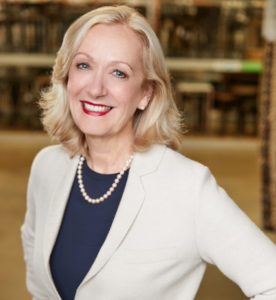

By Loretta McCarthy, Managing Partner of Golden Seeds
October 8, 2020The retail and fashion industries are experiencing massive upheaval in the wake of the COVID-19 pandemic. Deirdre Quinn, co-founder and CEO of Lafayette 148, a global fashion brand led by women for women, recently discussed the challenges with Golden Seeds member Paula Bennett. Deirdre shared the strategies that have enabled her brand not only to survive but to thrive, continuing to open new stores and launch new lines during a tumultuous time. Paula has many years of experience in the fashion and retail space, most recently as President and CEO of J. Jill for over 10 years. Previously, she was with Tiffany & Co., Calvin Klein, Eileen Fisher, Bloomingdale’s and more. This is one in a series of Golden Seeds Trend Talks focusing on topics that are relevant, instructive and inspiring.
Paula Bennett: Tell us about your background and the experiences that led you to found Lafayette 148.

Deirdre Quinn: In fourth grade, my mom insisted that I take sewing lessons, and I fell passionately in love with making something out of a piece of fabric. I was lucky enough to discover at that early age what I wanted to do with my life. I went to design school, started out in a garment factory and then worked for Liz Claiborne, Donna Karan and Escada. You have to work for great companies to know what great is.
During a stint in Hong Kong, I learned about fabrics and international cultures, which was invaluable. But I didn’t want to live on the other side of the world away from my big Irish family, and I wanted to build something of my own. So, I came back to New York and in 1996, I partnered with a factory on Lafayette Street that did great work. We named the business after the factory’s location in SoHo and focused on quality fabrics and small lots that we turned quickly. We knew we had to be better than the big brands in order to compete with them. It was a wild first five years.
In our first year of business we opened five retail stores and then closed them. My business partner, now deceased, was a smart man who figured out that when there’s a problem, you have to fix it fast. Little did he imagine we would eventually grow to have 29 stores and counting. On this journey, I’ve learned the value of the power of a brand, and the importance of creating a company culture that reflects your core values.
Paula Bennett: What does the Lafayette 148 brand stand for?

Deirdre Quinn: Our core values are kindness, intelligence and integrity, and our people are genuinely kind and hard-working. As a company that is owned and run by women, we are devoted to the women we dress. We are women dressing women. We know who they are, and we’ve never changed our focus.
I believe in welcoming every woman to our brand, and we exist to serve them all. We don’t say, “If you’re not young and skinny we don’t want to dress you.” In fact, we offer 58 sizes. And our team encompasses a wide variety of ages. Our designer is 40 years old, my former chief creative officer is almost 80 years old and I just turned 60 this year. We can outfit the mother, the daughter and the grandmother.
Paula Bennett: You’ve driven Lafayette 148’s progress for more than 24 years, which is an incredible achievement in this business. What part has vertical integration played in your success?
Deirdre Quinn: Handling the whole supply-chain process in-house — from sourcing to manufacturing and retailing — isn’t a strategy for everyone, but it works for us. I’m not a designer; my background is in manufacturing. Running a factory is tough, and it’s a huge responsibility. We have 1,200 sewers whose families are relying on us. Taking care of them isn’t easy in tough times like these, but it’s enabled us to become what we are. There are zero limitations on what we can do, because we do our own manufacturing. In the early years, we did a little private label, but now we don’t make products for anyone but ourselves. I realized it was much better to focus all of our energy on building our own brand.
Paula Bennett: Tell us about the challenges you’ve faced with the pandemic, and with previous crises such as 9/11 and the 2008 recession.
Deirdre Quinn: With every disaster, you have to figure out how to work smarter. You have to be able to pivot. After the terrible events of 9/11, we had to shut down manufacturing in lower Manhattan, so we built a factory in China. During the 2008 recession, we mailed 11 million catalogs and it helped drive business to our website.
With the pandemic, everything has changed. On March 17, the five department stores we supply canceled all orders we hadn’t shipped. Try sitting on 77,000 pieces of merchandise with no idea what to do with it! I felt like Houdini, in a straitjacket with chains, underwater—but we had to get out of it. We quickly opened three pop-up shops to move that inventory, which took the pressure off. We moved our whole New York operation to the Brooklyn Navy Yard in 2018, which saved us $4 million a year in rent.
Our executives stopped drawing salaries, employees took pay cuts and half the company was furloughed. Along with everyone else in the Navy Yard with a sewing machine, we started making gowns and masks for healthcare workers. One Friday, the city called us requesting gowns and masks, and by Saturday night we had the patterns ready. That’s the kind of thing entrepreneurs can do. We problem-solve from the time we get up until we go to bed, and that’s how you survive.
Paula Bennett: How has technology changed the way you work now?
Deirdre Quinn: Technology has sped everything up. We gave the Fashion Institute of Technology space in our factory to set up an innovation center and they’re teaching us about new technologies.
Our designers no longer travel to our factories, because they can do it all remotely using technology. We’re making patterns and doing fittings on the computer. We are creating smart factories and one sewer can produce a whole garment, rather than focusing on one specific aspect of it. With the restrictions of COVID-19 in place, there are no in-person markets, so we’re hosting virtual showrooms instead. It’s different, but the show goes on.
Paula Bennett: How has your business model changed this year?
Deirdre Quinn: We’re relying less on selling through department stores and selling more direct, and we’ve gone from mailing 11 million catalogs to 3.5 million. We’re shifting to digital and social media and adding employees in those areas. We’re opening four new stores in the U.S. and three in China this year, including adding a line of shoes. We are also investigating brand extensions into home goods such as pillows, blankets and customized products. At the same time, we’ve tightened up our inventory. It’s better to be sold out than to have products sitting on the shelf. Looking ahead, we’re exploring sources other than China and addressing sustainability issues, which are becoming very important.
Paula Bennett: What advice do you have for other entrepreneurs?
Deirdre Quinn: You have to be passionate about what you do, and be driven by it. You also have to surround yourself with great, like-minded people. I’m the leader of the band, but the band, itself, is critical, and the team that supports me is awesome.
Also, patience and persistence are key. It took us 22 years to get into Bergdorf Goodman, but now it’s a great partnership. You also have to be practical. Don’t spend beyond your means.
Finally, keep learning. It’s easy at some point in your career to feel content with the way things are, but it’s a new world. Take what you know and learn how to be faster and better, and you’ll be well-positioned for the future.
Learn more about Lafayette 148 on the company’s website.
Read more of our Golden Seeds blogs for relevant, instructive and inspiring insights.